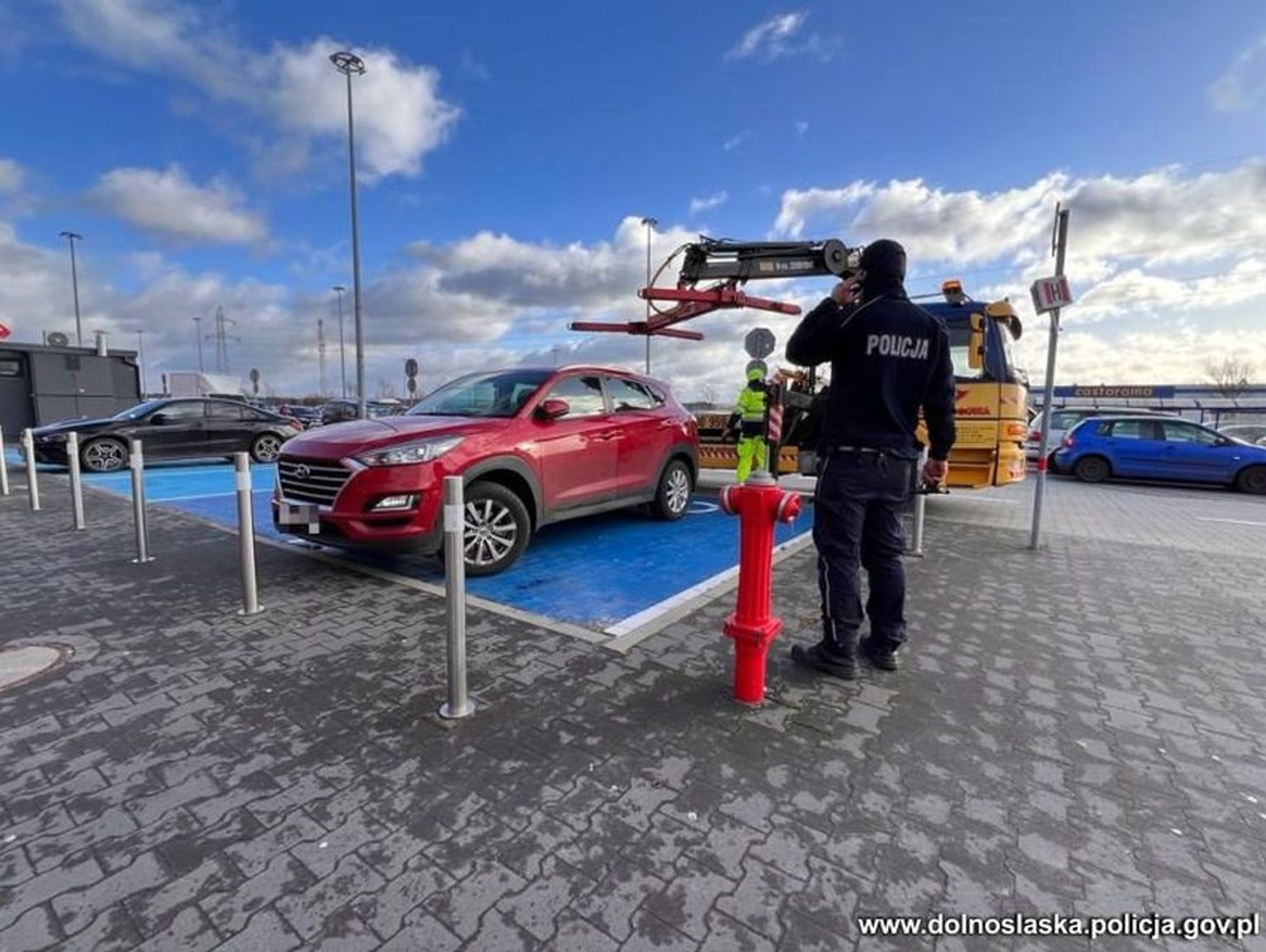
TOULOUSE- Airbus has started production of its first A350 freighter after completing delivery of all major components to its final assembly line. The aircraft, designated MSN 700, is now entering the build phase with the fuselage and wings ready for integration.
Airbus plans to conduct the first flight tests in 2026, with entry into service targeted for the second half of 2027. Sections of the fuselage were transported from facilities in France and Germany to Toulouse (TLS) using Beluga XL aircraft designed for oversized cargo.
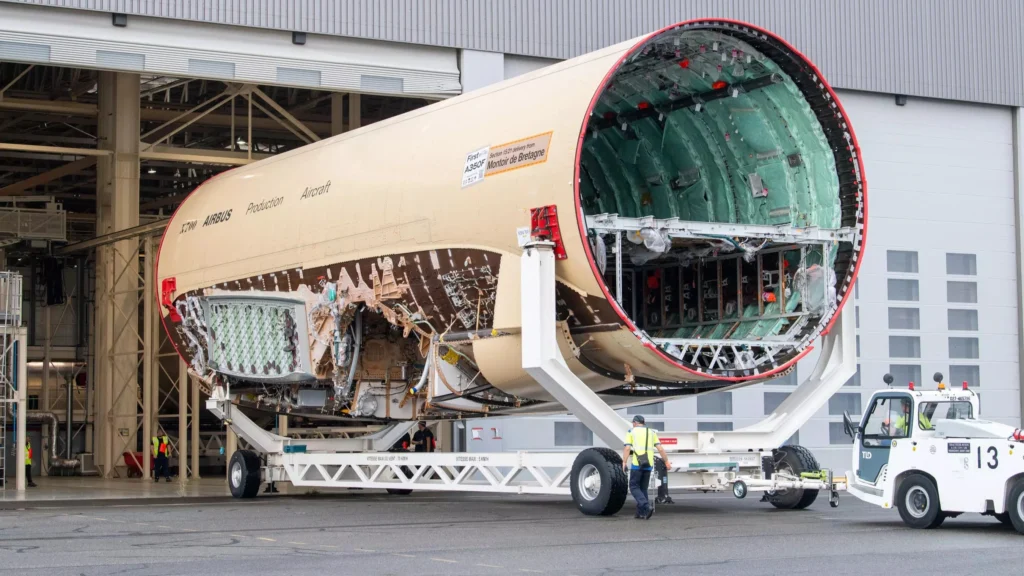 Photo: Airbus
Photo: AirbusAirbus A350F Assembly at Toulouse
The transition to assembly marks a significant step in the A350F program. Central fuselage sections arrived in Toulouse on 19 August, followed by forward sections two days later.
The rear fuselage, built in Hamburg (HAM), completed the delivery of primary structures. Airbus confirmed that assembly of these parts will begin within weeks.
The A350F is derived from the A350-1000 passenger aircraft but re-engineered for dedicated cargo operations. Airbus has emphasized that the design meets evolving demand for fuel-efficient, high-capacity freighters.
The A350F will be capable of carrying around 111 tonnes of payload over 4,700 nautical miles. Its main deck cargo door, measuring 175 inches wide, is one of the largest in its class and enables faster, more efficient loading operations.
Two prototypes are being built to support a certification and test program scheduled to run throughout 2026 and 2027. Once completed, Airbus expects the aircraft to serve airlines and logistics companies seeking reduced emissions and operational savings.
The freighter’s development responds to rising global demand for new-generation cargo aircraft. With air cargo traffic expected to grow steadily in the coming decade, airlines are under pressure to replace older, less efficient models. Airbus is positioning the A350F as a solution that combines fuel efficiency, capacity, and lower operating costs.
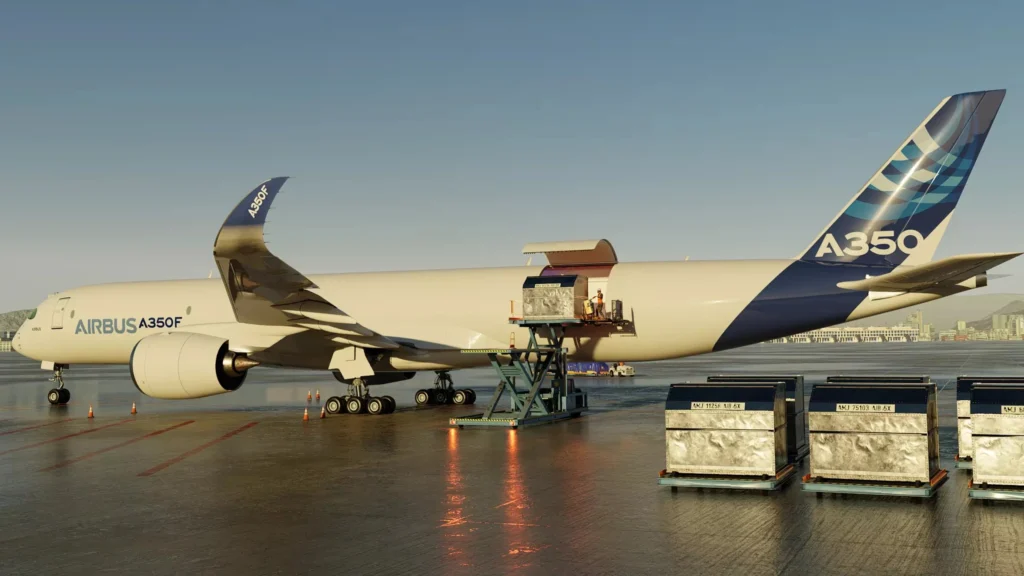 Photo: Airbus
Photo: AirbusAbout the A350F ‘Game Changer’ Aircraft
Airbus is positioning the Airbus A350F as the next major step in air cargo, aiming to meet both rising global trade demands and stricter environmental rules. The aircraft is being developed to address the projected need for more than 900 new freighters by 2044.
From its hub in Toulouse (TLS), Airbus is building the A350F with customer input, promising a new-generation freighter that reduces CO₂ emissions, improves efficiency, and supports the transition to Sustainable Aviation Fuel (SAF).
Meeting Future Cargo Demands
The A350F is the only new-build freighter designed from the ground up to comply with the ICAO CO₂ emissions standards that take effect in 2027. This makes it a forward-looking solution for airlines and logistics companies planning long-term fleet renewals.
Its design combines advanced aerodynamics, a carbon fiber airframe, and Rolls-Royce Trent XWB-97 engines, resulting in at least 20% lower fuel burn and CO₂ emissions compared with today’s freighters. Beyond emissions, the aircraft is also engineered for quieter operations, reducing noise impact on airport communities worldwide.
The A350F is certified to operate with up to 50% SAF at entry into service, with the capability to reach 100% by 2030. This aligns with industry-wide goals to cut aviation’s carbon footprint.
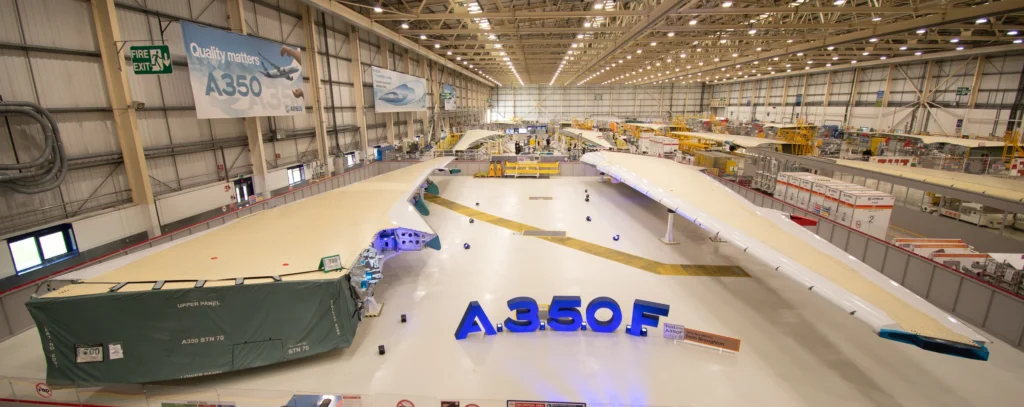 Photo: Airbus
Photo: AirbusInnovation Shaped by Cargo Operators
Unlike passenger-to-freighter conversions, the A350F was designed with direct input from cargo airlines. One standout feature is the largest main deck cargo door in its class, which allows faster and more flexible loading.
Its optimised fuselage, high internal volume, and strengthened floor design support flexible pallet and container loading. This helps operators balance payload distribution and maximize capacity. Importantly, the A350F can perform the benchmark Hong Kong (HKG) to Anchorage (ANC) route with full payload, meeting one of the cargo industry’s toughest operational tests.
These features make the aircraft versatile enough to handle everything from express parcels to heavy industrial shipments.
Built on Proven A350 Technology
The A350F benefits from the reliability of the A350 passenger family, which has logged millions of flight hours and achieved a 99.5% operational reliability rate in 2024. Airlines already flying the A350 will see reduced training costs and maintenance efficiencies thanks to commonality in type ratings, engines, and spare parts.
This cross-compatibility ensures the A350F integrates smoothly into existing fleets, supported by Airbus’s global maintenance and service network.
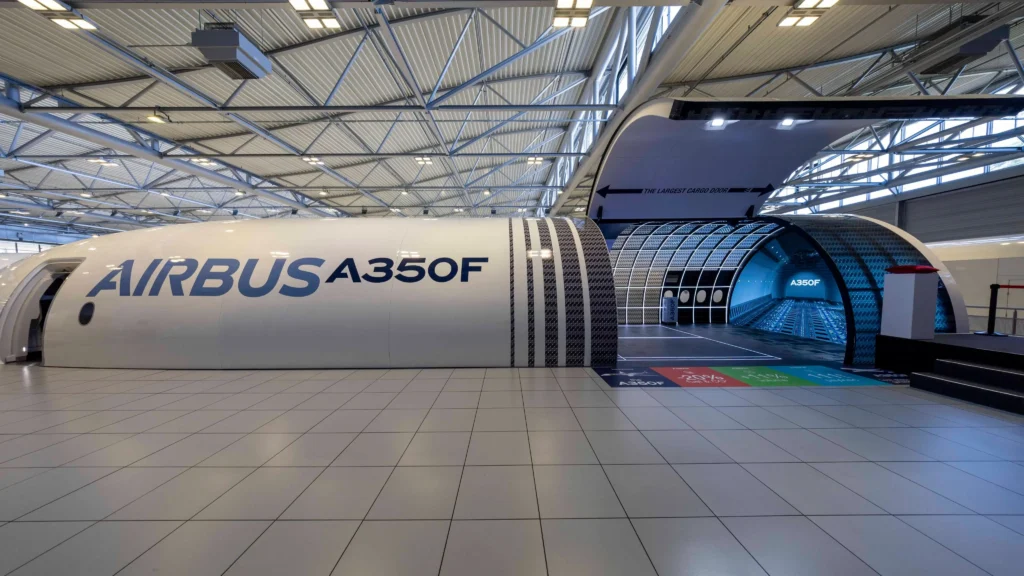 Photo: Airbus
Photo: AirbusCapacity and Versatility
The freighter is designed to carry up to 111 tonnes of cargo, giving airlines the ability to move both high-volume shipments and heavy, outsize goods across long-haul routes.
It is built to handle a wide range of freight types, including:
- Express and e-commerce parcels
- Pharmaceuticals and perishables needing temperature control
- High-value electronics
- Livestock transport
- Oversized industrial equipment
This makes the A350F one of the most versatile cargo aircraft on order today.
Why Next-Generation Freighters Matter
Global trade growth, the boom in e-commerce, and the retirement of aging freighter fleets are reshaping the cargo market. Airlines need efficient aircraft that burn less fuel, emit fewer emissions, and deliver higher reliability.
The A350F directly addresses these needs. By combining proven passenger aircraft technology with freighter-specific design, it offers airlines a dependable platform ready for the decades ahead.
Stay tuned with us. Further, follow us on social media for the latest updates.
Join us on Telegram Group for the Latest Aviation Updates. Subsequently, follow us on Google News
Air France-KLM Cancels 2 Airbus A350F Unit Order, €1.6 Billion Profit and More
The post Airbus Begins Assembly of This New Widebody Aircarft Variant appeared first on Aviation A2Z.












![Manifestacja "STOP ideologii LGBT" w Rzeszowie [ZDJĘCIA]](https://storage.googleapis.com/bieszczady/rzeszow24/articles/image/c5e9134a-100f-47db-abf4-926532b0b8a8)
